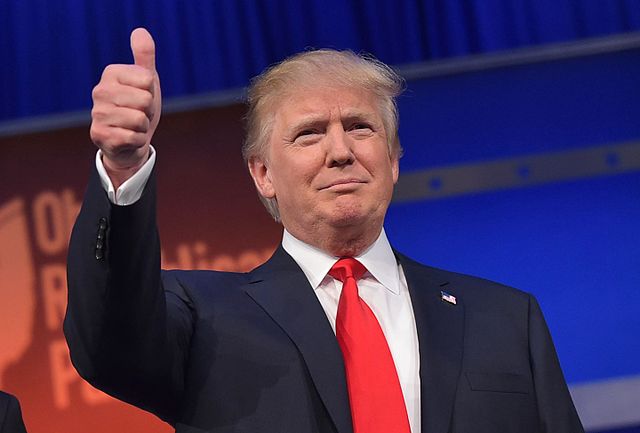Lewis Bloodworth, a third year student of Politics and Global Governance at Canterbury Christ Church University provides an interesting take on the implications of Donald Trump’s victory.
For many, the election of Donald Trump seemed unthinkable, even impossible; his style of politics completely against the grain of what was deemed acceptable behaviour and discourse, and yet he won. His victory built on a foundation of bigotry wrapped in the guise of honesty, the humble words of a reputable business man simply telling it as it is.
Trump is a by-product of a world made increasingly artificial, simulated and digital; his style politics thriving in a world of hyper consumerism, where reality seems like such a distant entity, always observed but never felt. If anything Trump embodies the ultimate postmodern president, a man who blurs the line between fact and fiction, treats his very name as a commodity; the man of the people, a multi-billionaire. At a time like this, Karl Marx’s observation that “History repeats itself, first as tragedy, then as farce” remains as prescient as ever.
But what does Trump represent beyond mere demagoguery? He represents decay, he represents the failures of the existing neoliberal order. Trump’s victory constitutes a rupture within our frame of normality, its ripples permeating the globe; just as Brexit, our political landscape is evidently different from before, even if the full effects are yet to manifest.
Slavoj Žižek recently endorsed Trump on the simple premise that his triumph would effectively dismantle the status quo, it would accelerate social decay and economic anomie. It would force change on a reluctant establishment, and for better or worse, would usher into existence something different than what came before.
The accelerationist logic here effectively captures the nihilistic milieu we find ourselves in; it supposes that “the only radical political response to capitalism is not to protest, disrupt, or critique, nor await its demise at the hands of its own contradictions, but to accelerate its uprooting, alienating, decoding, abstractive tendencies.” We must surge through the stagnate waters of neoliberal decay; Trump acting as an accelerant, fanning the flames of political upheaval.
There is perhaps some truth to this argument (albeit a painful one); as the Trump candidacy has demonstrated already that the centrist old guard are on the retreat. The middle ground is eroding as it is beset on all sides by populisms of the left and right. In our postmodern world, of hyper consumerism, and post truth politics, all that was taken for granted is being lost. Establishment politics, which Clinton in effect represented, did what it is currently doing best across the west: it lost.
Trump’s victory was not really a result of his actual popularity, or the attractiveness of his policies; rather the vacuity and weakness of his opponents; his victory acting as a rallying cry for fascists, demagogues and racists who seek to control, dominate and divide. There was no real opposition; Hillary clung to a defunct ‘third way’ politics, utterly demoralising the democratic base. Where hope was needed, fear and derision were provided; thus emboldening the right.
Nietzsche wrote that “madness is something rare in individuals – but in groups, parties, peoples, ages it is the rule”, perhaps we are all simply descending into some form of collective madness, where reason once prevailed but has since descended into a violent regressive form of bigotry, which seeks to shut the world out. This populist insurgency that has descended upon our political landscape is not however something that appeared out of thin air, its energy has simply been suppressed for a long time; it is merely a symptom of our suppressed collective unconscious.
The reigning ‘common sense’ centrism of the Democratic Party failed to provide a solution to the issues raised by economic stagnation, deindustrialisation and the endemic precarity it created, thus laying the foundation for Trumpism which offered quick fixes predicated on hate. Trumps slogan of making America ‘great again’ seamlessly tapped into the sense of collective loss that many post-industrial communities feel, a similar social context fuelling Brexit within Britain.
Trump is a monster of our own making, a creature who sustains itself on echoes from the past in a world which for many does not have a future. Chaos does seem near at hand; an accelerated condition of instability, insecurity and uncertainty as our haggard hegemon, the United States, spirals further into the abyss all empires eventually enter. Ultimately progressives of all shades must recognise their failures, look for alternatives, and oppose all bigotry, finding some light in the darkness; as Mao Zedong once said “Everything under heaven is in utter chaos; the situation is excellent.”
 Politics
Politics Anna Vanaga
Anna Vanaga 277
277


